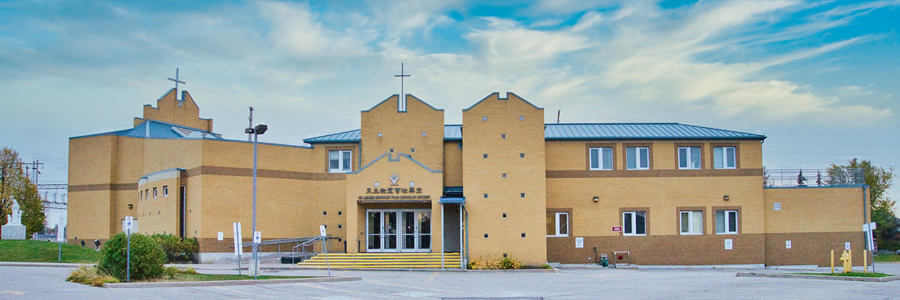- Home
- 우리들의 공동체
- 우리들의 신앙
- 성무 활동
- 본당 생활
- 게시판
- 연락처
- Search

Spiritual Corner -- The Greatest Blessing of All—to be United with God
The celebration of thanksgiving Mass is the occasion when the faithful, through Holy Communion, i.e. receiving the body and blood of the Lord, can be intimately united with Christ. Acceptance of the communion is the recognition of Christ’s sacrifice of Himself for us. Every time we receive Holy Communion, we will remember the great “blessing” of being united with Christ. What a “blessing” it is for a humble sinner like me to participate in Sunday Mass and receive Holy Communion.
Every time we receive Holy Communion, we are thinking of our unity with the Lord. Isn’t this similar to what is often said in the Chinese culture: “unity of heaven and man”?
This notion of “unity of heaven and man” has been deeprooted in the Chinese tradition, and it was an important rule and guidance for our long-gone ancestors in their daily lives. However, the concept of “unity of heaven and man” is totally different between people in China and those in the western world.
“Unity of heaven and man” was one of the core values of Chinese philosophy. The ancients, in the search of the rules of the operation of nature, worshipped heaven, revered the gods and the earth, and offered sacrifices to their ancestors. Their descendants, from the concept of nature to the concept of the state and the concept of the acquisition of knowledge, realize that “unity of heaven and man” is the origin of the universe and all matters, and is the path and rules of the development of our society. The concept of “unity of heaven and man” is the accumulation of the wisdom, skills and philosophy of the sages of the early centuries, and is an integration of the spirit of nature and man in the search of the rationality of nature and morality. The study of nature and man, the understanding of historical changes, the induction between heaven and human and the harmony between yin and yang have been lifelong search topics of Chinese thinkers and philosophers throughout the ages.
In the Catholic thanksgiving Mass, we, together with Christ, offer our gratitude to our Heavenly Father, thank Him for the creation of the universe and praise Him for accomplishing our salvation in Christ. Through the liturgy, the mass re-plays the great scene of the “love of Christ”----Jesus Christ sacrificed His life on the cross. During mass, we receive the body and blood of Christ, and are invited to unite with Christ to become one body; at the closing, we are dispatched to go out to become the source of spiritual food and nutrient for other people.
The simplest interpretation of receiving Holy Communion is to be united with God, i.e. “unity of heaven and man”, I am in God and God is in me. “Abide in me, and I in you”. (John 15: 4)
Yours,
Sr. Magdalena Yang
